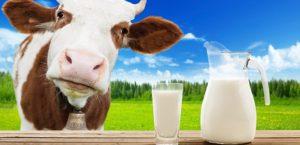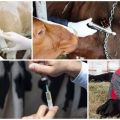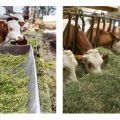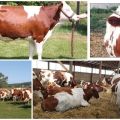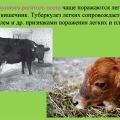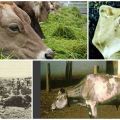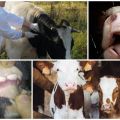Instructions for use and properties of the bovine leptospirosis vaccine, dosage
Leptospirosis is an infectious disease of cattle and other mammals that has a negative impact on many organs of animals. Among the preventive measures to eliminate and prevent the disease, vaccination takes the leading place. Consider the biological properties of the vaccine against bovine leptospirosis and the rules of application according to the instructions, what preventive measures are used against the disease.
general information
Leptospirosis in cows is not cured, the use of medication can only support the body and reduce the severity of symptoms. Sick animals do not recover and will carry Leptospira for many years in a row. Pathogens are excreted in the urine, through contact with which healthy individuals are infected. Due to the prevalence of the disease, the best option to combat it is vaccination, which gives an almost 100% guarantee that the animals will not get sick.
The Stavropol Biofactory produces an inactivated vaccine called "Leptopro". This is a suspension for injection, which contains Leptospira cultures for immunization of pigs, cattle and small ruminants and preservatives. The drug is a colorless liquid, transparent, but with a gray-white precipitate; when shaken, the precipitate forms a homogeneous mixture with the liquid. Packaged in bottles of 100 ml. The shelf life is 1.5 years. Storage and transportation at 2-8 ° C in a dark and dry container.
Biological properties
"Leptopro" forms an active immunity to the causative agent of the disease in farm animals. Vaccination reduces the likelihood that animals will get sick, eliminates secondary infection and massive spread of infection.
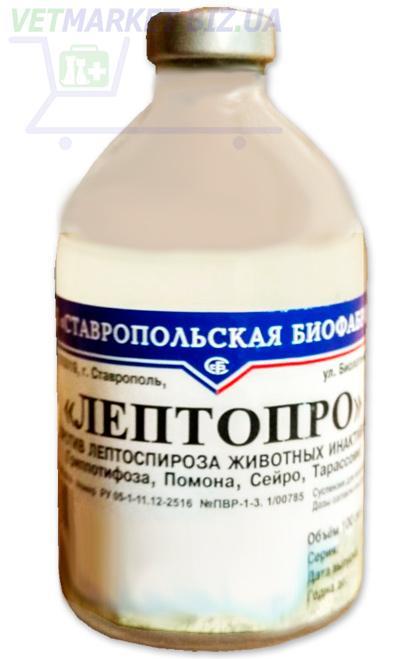
How to administer the leptospirosis vaccine
Cows are vaccinated when they reach 1.5 months. Immunity is developed in 2-3 weeks, in adult animals, which were vaccinated at the age of 1 year, - within 12 months. The vaccine is injected into the body of cows 1 time in the dosage indicated in the instructions. The action of immunity lasts up to 6 months, so vaccination is necessary every year.
Adult cows are vaccinated 1-2 months before insemination or in the first third of pregnancy to prevent abortion. For the formation of immunity in newborn calves, cows are immunized 1.5-3 months before delivery.
Before inoculation, you need to shake the bottle so that the suspension is homogeneous. Disinfect the injection site with alcohol, boil the instruments.

In what cases cannot be used?
You cannot vaccinate cows in the last month of pregnancy, within a week and a half after calving and deworming. After the indicated dates, such cows can be vaccinated.
It is possible to vaccinate completely healthy cows if there is a fever, inflammation and damage, signs of infectious diseases - vaccination should be postponed until the individual recovers. Can be vaccinated no earlier than 3 weeks after the injection of hyperimmune serum, after immunosuppressive drugs - after 3 months.
Are there any side effects
The vaccine does not show any side effects if it is used in accordance with the instructions. The milk and meat of vaccinated animals are suitable for consumption.
Preventive measures
Leptospira breed in humid and warm places, often in bodies of water. The complex of preventive measures against leptospirosis includes the protection of water sources from pollution by secretions of sick animals and carriers of leptospirosis bacteria, agricultural objects and food from rodents (leptospira can be carried by rats and shrews). Dogs are also dangerous. Do not keep animals and graze them near polluted water bodies.
In case of detection of cases of disease, vaccination should be carried out for people. People become infected with leptospira through contact with the secretions of sick cows when caring for them, as well as through water. You can get infected when processing meat, drinking milk. For bacteria to enter the body, a slight damage to the skin is enough, the pathogen can also enter through the mucous membranes and conjunctiva of the eyes.
The vaccine against leptospirosis is intended for the annual vaccination of cattle in industrial and households. You can vaccinate dairy calves, adult cows, including pregnant and weakened animals. Under the influence of drugs, cattle develops an active immunity that lasts for 6 months.
